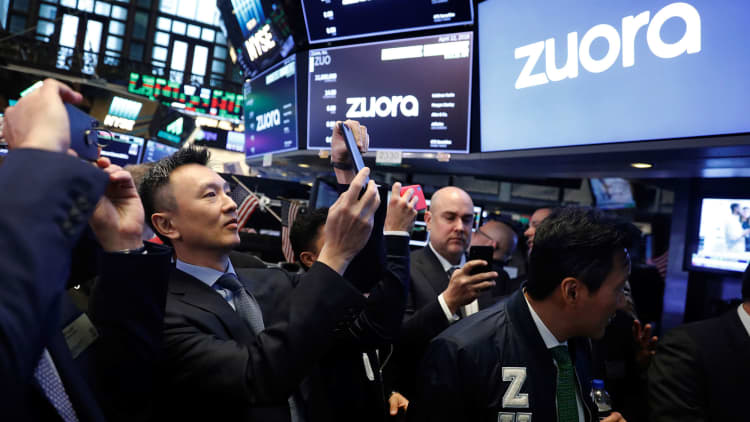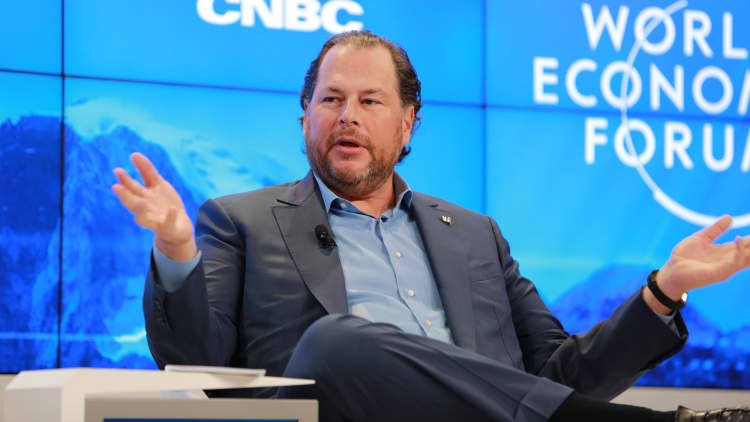
Zuora CEO Tien Tzuo said that in the months leading up to his software company's IPO, his bankers were preparing him for a flood of questions about Amazon.
"Everyone is going to ask why Amazon can't crush you," Tzuo said in an interview Thursday, reflecting on the comments he was getting from his underwriters late last year. "They were really worried about that in the prep."
As it turns out, it hardly came up on the roadshow.
Zuora, whose cloud software helps subscription-based companies manage their billings and finances, debuted on the New York Stock Exchange on Thursday under the ticker symbol ZUO. The stock rose 43 percent to $20, giving the company a stock market value of more than $2 billion.
The subscription economy
Zuora is nothing like Amazon or its cloud computing division Amazon Web Services. In fact, Zuora is a customer of AWS, where it hosts much of its data and operations, and some parts of Amazon even use Zuora's technology.
But there's a growing concern — or paranoia — across the technology landscape that Amazon is going to move up and down the software stack and take on everyone. As of December 2017, half of the enterprise software or cloud companies planning to go public in 2018 had listed Amazon or AWS as competitors.
Zuora does not reference Amazon as a competitor. The company names Oracle and SAP as rivals as well as "other niche systems, such as Amdocs Limited."
Tzuo said that on the roadshow investors wanted to know what Oracle and SAP were doing in the market and why other companies wouldn't just "want to bring it in-house." He said the Zuora story is pretty easy to explain and defend at this point because so much of the world is moving to subscriptions.
It's not just media and software businesses like Netflix, Spotify and Dropbox, but manufacturers, industrial companies, traditional retailers and utilities as well. Tzuo said that guitar maker Fender has become a big customer -- not because musicians are renting guitars, but because the company has created a subscription digital offering that helps people learn to play, keep their instruments tuned and provide a "whole experience of enjoying music."

Tzuo said that only half the company's revenue comes from the technology sector.
Zuora's Wall Street opening isn't the first for Tzuo. He was chief marketing officer at Salesforce and traveled to New York when the cloud software pioneer went public in 2004. Software as a service was a much riskier business then, as investors only knew the licensing model used by Microsoft, Oracle, SAP and Siebel (later acquired by Oracle).
There are now almost 50 publicly traded cloud software companies that are valued at $1 billion or more, according to the Bessemer Venture Partners Cloud Index. And Salesforce recently agreed to buy MuleSoft for $6.5 billion, its biggest acquisition ever.
"Investors really understand the SaaS business model now," Tzuo said.


